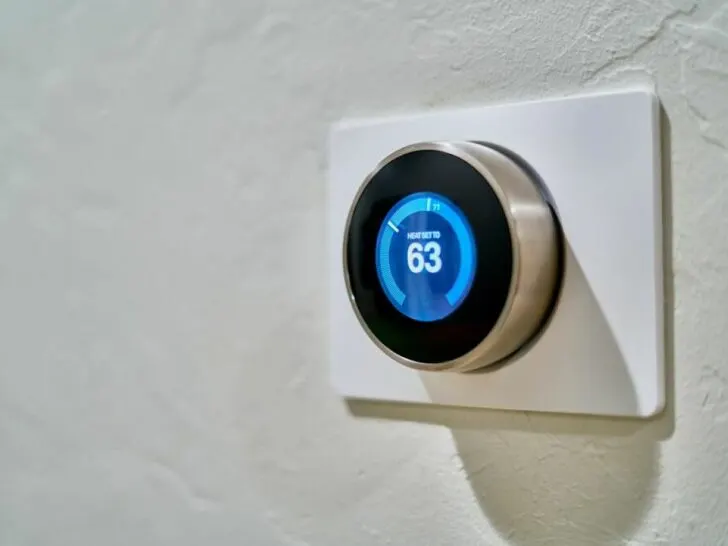Summary: The main difference between the Honeywell T9 and T10 is that the T10 features a dual fuel mode for maximum heating efficiency.
Honeywell is known for making products in line with building control including heating, ventilating, and air conditioning systems.
The T9 and T10 are amongst the well-known thermostats that you should seriously consider for your home.
In this article, I’ll take a look at the differences between the Honeywell T9 and T10 to help you make an informed decision as to which one is the better choice for your home’s heating system.
Let’s find out!
By continuing to use this website you agree to our Terms of Use. If you don't agree to our Terms, you are not allowed to continue using this website.
Honeywell T9 vs Honeywell T10 (Features)
I have created this table to better view the differences between T9 and T10.
| T9 | T10 | |
| Voltage | low voltage | millivolt, low voltage |
| Features | remote programming, programmable | remote programming, programmable |
| Screen | touchscreen, digital | digital |
| Assistant Support | Amazon Alexa, Siri, Google Assistant | Amazon Alexa, Google Assistant |
| Installation | C-wire, DIY, wire sensing | more wires, professional installation |
| Price | $150 depending on sensors | $180 depending on sensors |
| Controls | temperature, humidity | temperature, humidity, ventilation |
As you can see, the Honeywell T10 is a bit more expensive but it comes with most of the features that you’ll require for an efficient heating system.
What is the Dual Fuel Mode?
The dual fuel mode operates in a mixture of two different fuels – natural gas and diesel are frequently used in the dual fuel operating system.
In that sense, when the natural gas stops working, the diesel will function or vice versa. As a result, the temperature, humidity, and ventilation in a room are at their best.
And that’s the huge advantage of T10 over T9!
That also means that T10 can control your heat pump and gas furnace. So, if your heat pump suddenly stops working, the gas furnace will take over in controlling the thermostat.
On the other hand, the T9 could be a better option for you if you don’t have a gas furnace or if the dual fuel mode is not really a thing for you.
Learn more about dual fuel engines in the video below!
Frequently Asked Questions (FAQs)
What distinguishes a Honeywell T9 from a T10?
The dual fuel mode feature distinguishes the Honeywell T9 from T10. Therefore, the T10 is a more efficient heating system.
Can the Honeywell T10 regulate humidity?
Yes, the Honeywell T10 can regulate humidity. It can adjust room temperature depending on humidity and occupancy.
What is the range of the Honeywell T9 sensor?
The Honeywell T9 sensor ranges up to 200 ft similar to other smart room sensors.
Does Honeywell T9 Need a C wire?
The Honeywell T9 already comes with a C-wire adapter so you don’t need to buy one separately.
The C-wire, or the common wire, is a requisite for all Wi-Fi-based thermostats to draw power from heating and cooling systems.
What voltage is the Honeywell T9 line?
The Honeywell T9 works with 24v HVAC system setups.
How do I know if my thermostat needs a C wire?
If you’re using a Wi-Fi-powered thermostat, then you would need a C-wire.
Traditional thermostats that are battery-powered do not usually require C-wire. It is only those that are already integrated with smart home systems like Honeywell that would require C-wire.
The Verdict
The Honeywell T9 and T10 are both excellent thermostats that work efficiently. Both come with excellent features designed for making your room temperature cozy.
As for differences, it’s the dual fuel mode that makes the other one stands out, feature-wise. The T10 has a dual fuel mode which controls the heat pump and gas furnace. When the heat pump stops, the gas furnace will take over to control the heating system.
That said, you might prefer the Honeywell T10 to T9. Still, that depends on your preferences and the kind of heating system that you already have at home.

